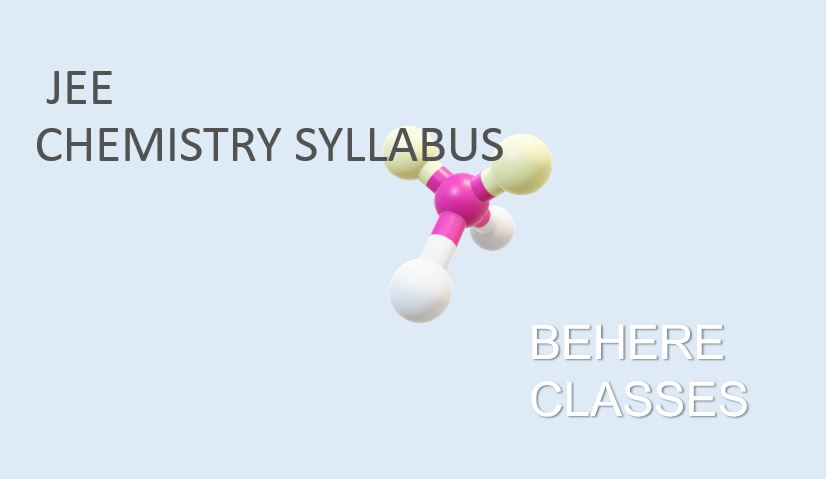"Crucial Chemistry Syllabus for JEE Exam: Key Topics to Master"
Preparing for the Joint Entrance Examination (JEE) requires a comprehensive understanding of various chemistry topics. Here's a breakdown of the essential chapters you need to focus on:
*1 Transition Elements and Coordination Chemistry:*
Delve into the properties, coordination complexes, and bonding of transition metals, essential for understanding complex reactions and mechanisms.
*2 Periodic Table and Representative Elements:*
Understand the organization of elements, periodic trends, and the properties of representative elements, which form the basis of chemical reactions.
*3 Thermodynamics and Gaseous State:*
Explore the laws of thermodynamics, heat, and energy transfer, along with the behavior of gases under different conditions.
*4 Atomic Structure:*
Gain insights into the structure of atoms, electronic configurations, and quantum mechanics, laying the foundation for understanding chemical bonding.
*5 Chemical Bonding:*
Grasp the concepts of chemical bonding, including covalent, ionic, and metallic bonds, crucial for predicting molecular structures and reactivities.
*6 Chemical and Ionic Equilibrium:*
Learn about chemical equilibrium, Le Chatelier's principle, acid-base equilibrium, and ionic equilibria, essential for understanding reaction kinetics.
*7 Solid State:*
Understand the various types of solids, crystal structures, and their properties, which are fundamental to material science and engineering.
*8 Nuclear Chemistry and Environment:*
Explore nuclear reactions, radioactivity, and their applications, along with environmental chemistry and sustainability principles.
*9 Mole Concept:*
Master the concept of moles, stoichiometry, and chemical calculations, which form the basis of quantitative analysis.
*10 Redox Reactions:*
Understand oxidation-reduction reactions, balancing chemical equations, and their applications in various chemical processes.
*11 Electrochemistry:*
Explore electrochemical cells, Faraday's laws, and electrolysis, crucial for understanding energy storage and conversion.
*12 Chemical Kinetics:*
Grasp the rates of chemical reactions, reaction mechanisms, and factors affecting reaction rates, vital for predicting reaction outcomes.
*13 Solution and Colligative Properties:*
Learn about solutions, solubility, colligative properties, and their applications in various industries.
*14 General Organic Chemistry:*
Understand the basic principles of organic chemistry, including nomenclature, isomerism, and reaction mechanisms.
*15 Stereochemistry:*
Explore the three-dimensional arrangement of molecules, chirality, and stereoisomerism, crucial for understanding molecular interactions.
*16 Hydrocarbons:*
Study the properties, reactions, and synthesis of hydrocarbons, including alkanes, alkenes, and alkynes.
*17 Alkyl Halides:*
Learn about the properties, reactions, and synthetic methods of alkyl halides, essential intermediates in organic synthesis.
*18 Carboxylic Acids and Their Derivatives:*
Understand the properties, reactions, and applications of carboxylic acids, esters, and acid derivatives.
*19 Carbohydrates, Amino Acids, and Aromatic Compounds:*
Explore the structures, properties, and functions of carbohydrates, amino acids, and aromatic compounds, essential biomolecules.
By mastering these key topics, you'll be well-prepared to tackle the chemistry section of the JEE exam and pave the way for success in your academic and professional endeavors.

